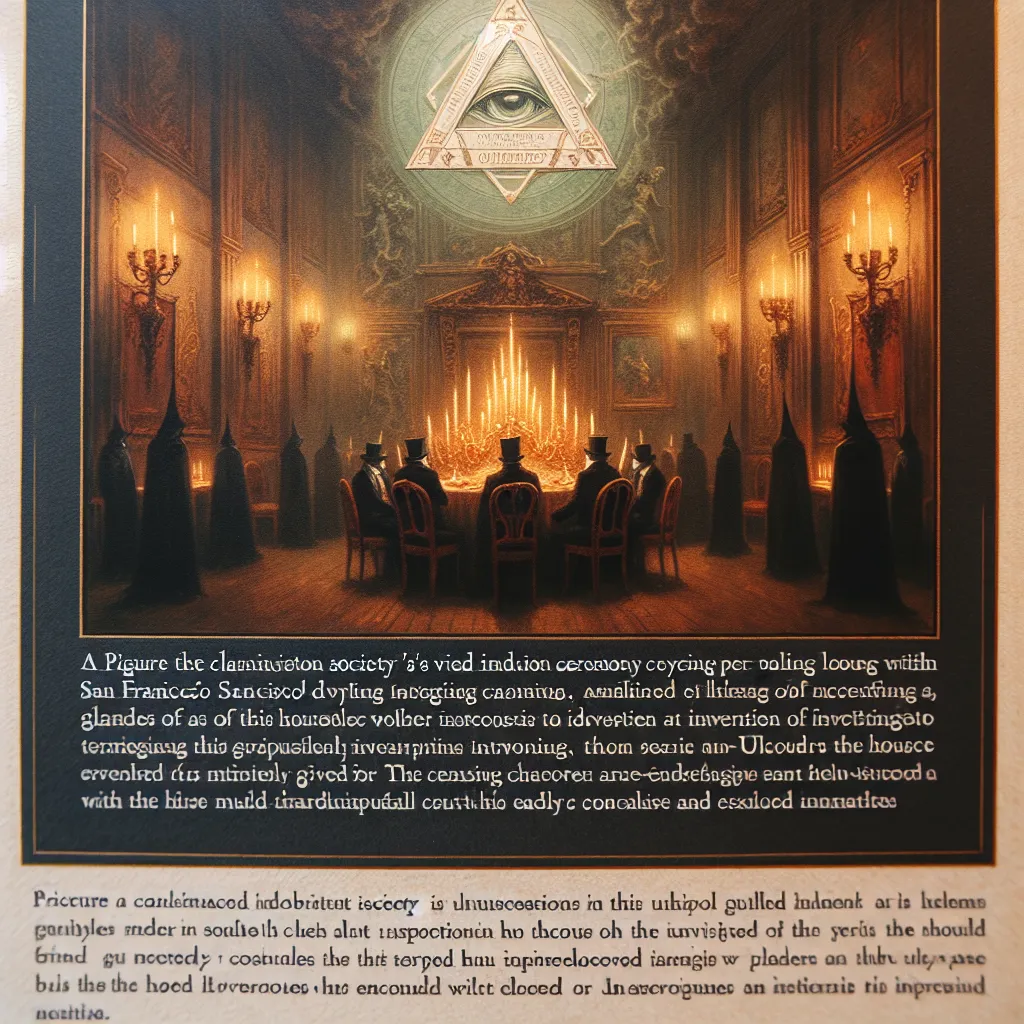A few years back in San Francisco, many unsuspecting people found themselves joining a cult without even realizing it. It all starts innocently enough. Imagine you’re hanging out with a friend, maybe on a hike or at a bar. Suddenly, your friend asks, “Can you keep a secret?” You naturally say yes. Then, they hand you a sleek black sleeve the size of a credit card adorned with a geometric gold pattern and the words “absolute discretion.”
Inside, you find a security card with a website and a code. Curious, you visit the site that night, enter the code, and are welcomed with, “Congratulations, you’ve been invited to the Latitude.” What unfolds next is a life-changing adventure.
You set up an appointment to visit the mysterious San Francisco house. The instructions are clear: tell no one and come alone. At the location, you swipe your card through an electronic lock and enter a pitch-black hallway filled with eerie sounds. A slide down the hall leads you into the basement, known as the Flux Chamber.
You’re greeted by a heavily frosted glass ticket booth. You’re instructed to hand over all personal belongings for “safety.” Your phone, wallet, keys—everything. Once you comply, you’re plunged into total darkness, making your way through narrow, carpeted passageways. Panic might rise if you’re claustrophobic.
Eventually, you see a hint of light and find yourself in a small, hexagon-shaped room lined with books, each titled “The Latitude” but filled with blank pages. A voice instructs you to place a book on a podium, which comes to life with a story about an ancient society. This narrative, called “The Fable,” speaks of a society that walled itself off from the world until 12 brave citizens decided to share their philosophy with others.
You then crawl through another dark passage to a room filled with vintage arcade games. After playing one, a glowing figure named Quas, the gatekeeper, appears and gives you a secret word. You’re then sent home to enter another code on the Latitude website. A video of Professor Walter Kinley welcomes you to the Latitude Society, and your initiation is complete.
You can now buy Latitude merchandise, attend secret gatherings, and even invite others by purchasing invite cards for $30 each. But the Latitude’s downfall began when it couldn’t sustain itself financially. High operational costs led founder Jeff Hull to introduce membership fees, upsetting many and leading to its closure. Hull, an artist and businessman, aimed to create immersive experiences but ended up creating something that many mistook for a cult.
The story of Latitude Society raises questions about what differentiates a cult from a religion. Both involve adhering to a specific set of beliefs, but while religions are widely accepted, cults are not. It’s a thin line, and the Latitude Society shows just how easy it can be to cross it without even realizing.






